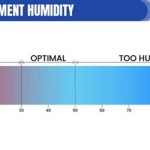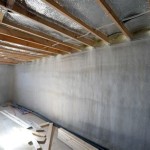Is Sewer Smell in Basement Dangerous?
A musty or foul odor in your basement can be an alarming sign. While not all basement smells are dangerous, some may indicate underlying issues that require immediate attention. One common culprit of unpleasant odors in basements is sewer gas, which can pose health risks if not addressed promptly. Let's explore the potential dangers of sewer smell in basements and the essential steps to take when you encounter such an odor.
### Health Risks Associated with Sewer GasSewer gas, primarily composed of hydrogen sulfide and methane, can be toxic to humans. Hydrogen sulfide has a characteristic "rotten egg" smell and can irritate the eyes, nose, and throat. Inhaling high concentrations of hydrogen sulfide can lead to serious respiratory issues, including shortness of breath, dizziness, and even unconsciousness. Methane, while not directly toxic, is flammable and can pose a risk of explosion if it accumulates in high concentrations.
### Causes of Sewer Smell in BasementsSewer smell in basements can arise from several causes:
- Dry Drain Traps: P-traps underneath sinks and floor drains create a seal that prevents sewer gas from escaping. When these traps dry out, such as during prolonged periods of non-use, sewer gas can leak into the basement.
- Damaged or Cracked Pipes: Leaks or cracks in sewer pipes can allow sewer gas to escape directly into the basement.
- Blocked Vents: Vents help ventilate sewer lines and prevent gas build-up. Blockages in these vents can cause sewer gas to back up into the basement.
- Faulty Seals: Seals around pipes and fixtures can wear out over time, creating openings for sewer gas to escape.
If you detect a sewer smell in your basement, it's crucial to take the following steps:
- Ventilate the Area: Open windows and doors to air out the basement and remove the foul odor.
- Check Drain Traps: Inspect P-traps to ensure they are filled with water and creating a proper seal.
- Inspect Pipes and Fixtures: Look for any visible leaks or cracks in pipes and fixtures.
- Check Vents: Make sure the vents leading outside are free of debris and not blocked.
- Call a Plumber: If you cannot find or resolve the problem yourself, contact a licensed plumber who can inspect the sewer system and address any underlying issues. ### Prevention Tips
- Run water regularly through all sinks and drains to keep P-traps filled.
- Inspect pipes and fixtures periodically for signs of wear or damage.
- Keep basement floors and drains clean to prevent blockages.
- Ensure proper ventilation in the basement by using a dehumidifier or installing a fan.
To minimize the risk of sewer smell in your basement, consider these prevention tips:
Sewer smell in basements can be a cause for concern but is often preventable and manageable. If you encounter such an odor, it's important to address the issue promptly by ventilating the area, inspecting potential sources, and contacting a plumber if necessary. By following these steps and implementing preventive measures, you can protect your home and family from the potential health risks associated with sewer gas.
I Have A Faint Sewer Smell In My Basement Utility Room M Having Plumber Come To Look At Ejector Tomorrow Is It Alright For Family Sleep The House

What To Do If You Smell Sewer Gas Is It Dangerous

Septic Stench What That Rotten Egg Smell Means And To Do About It Flohawks Plumbing

Sewer Gas Might Pose A Risk To Your Health Home Clearview Plumbing

Is Sewer Smell In The House Dangerous Blocked Drains Melbourne Experts Drain Plumbers

Troubleshooting Pumps There S A Sewer Gas Smell Onsite Installer

Remove Sewage Smell From Your House The Odor Dude Expert Free Removal Help

A Sewage Smell In Basement Ehow
Why Does My House Smell Like Sewer At Night Quora

Sewer Smell In Basement








